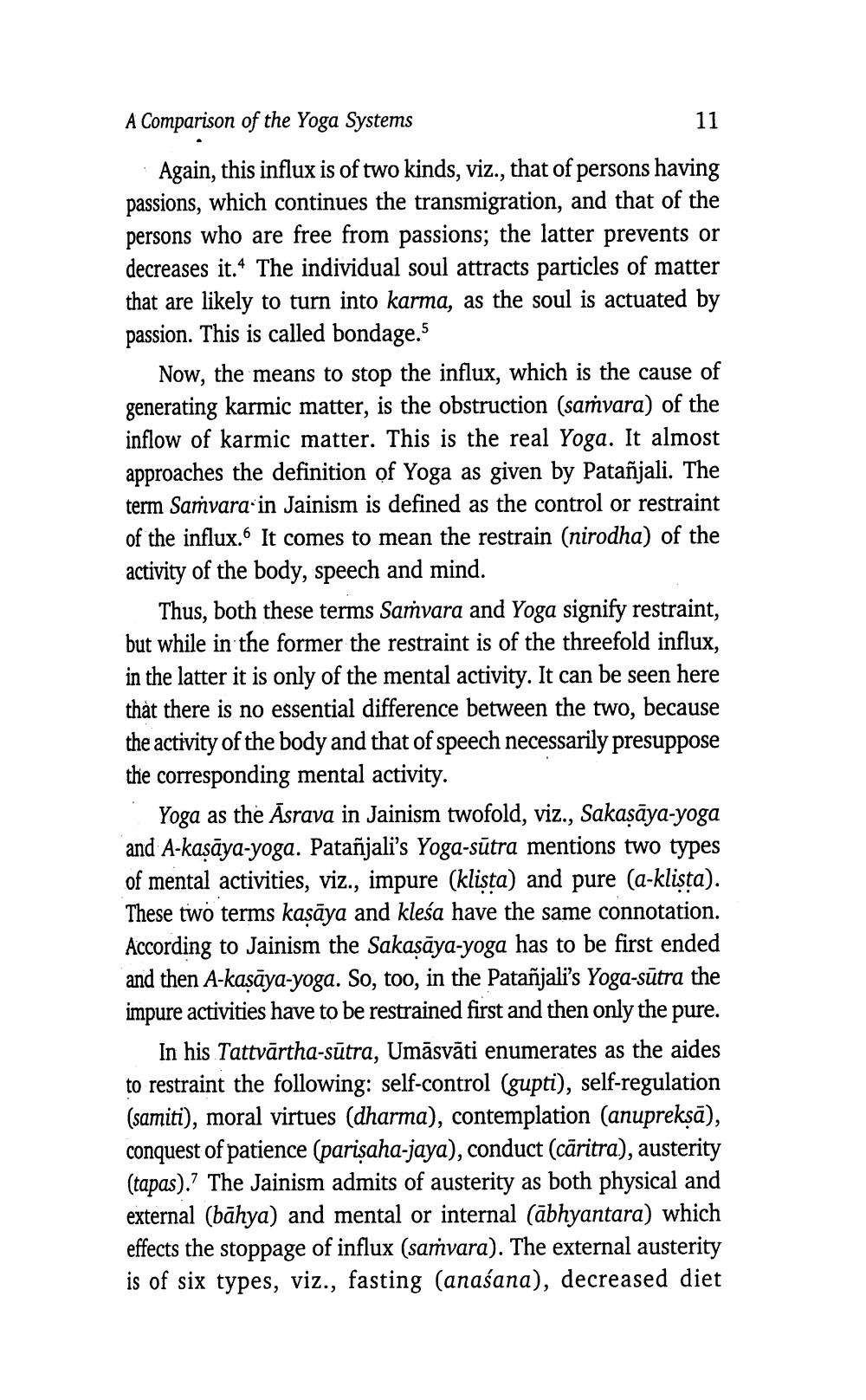________________
A Comparison of the Yoga Systems
11
· Again, this influx is of two kinds, viz., that of persons having passions, which continues the transmigration, and that of the persons who are free from passions; the latter prevents or decreases it. The individual soul attracts particles of matter that are likely to turn into karma, as the soul is actuated by passion. This is called bondage."
Now, the means to stop the influx, which is the cause of generating karmic matter, is the obstruction (samvara) of the inflow of karmic matter. This is the real Yoga. It almost approaches the definition of Yoga as given by Patañjali. The term Saṁvara- in Jainism is defined as the control or restraint of the influx. It comes to mean the restrain (nirodha) of the activity of the body, speech and mind.
Thus, both these terms Saṁvara and Yoga signify restraint, but while in the former the restraint is of the threefold influx, in the latter it is only of the mental activity. It can be seen here that there is no essential difference between the two, because the activity of the body and that of speech necessarily presuppose the corresponding mental activity.
Yoga as the Asrava in Jainism twofold, viz., Sakasāya-yoga and A-kasāya-yoga. Patañjali's Yoga-sūtra mentions two types of mental activities, viz., impure (klista) and pure (a-klista). These two terms kasāya and kleśa have the same connotation. According to Jainism the Sakasāya-yoga has to be first ended and then A-kasāya-yoga. So, too, in the Patañjali's Yoga-sūtra the impure activities have to be restrained first and then only the pure.
In his Tattvārtha-sūtra, Umāsvāti enumerates as the aides to restraint the following: self-control (gupti), self-regulation (samiti), moral virtues (dharma), contemplation (anupreksā), conquest of patience (parişaha-jaya), conduct (cāritra), austerity (tapas).? The Jainism admits of austerity as both physical and external (bāhya) and mental or internal (ābhyantara) which effects the stoppage of influx (saṁvara). The external austerity is of six types, viz., fasting (anaśana), decreased diet




